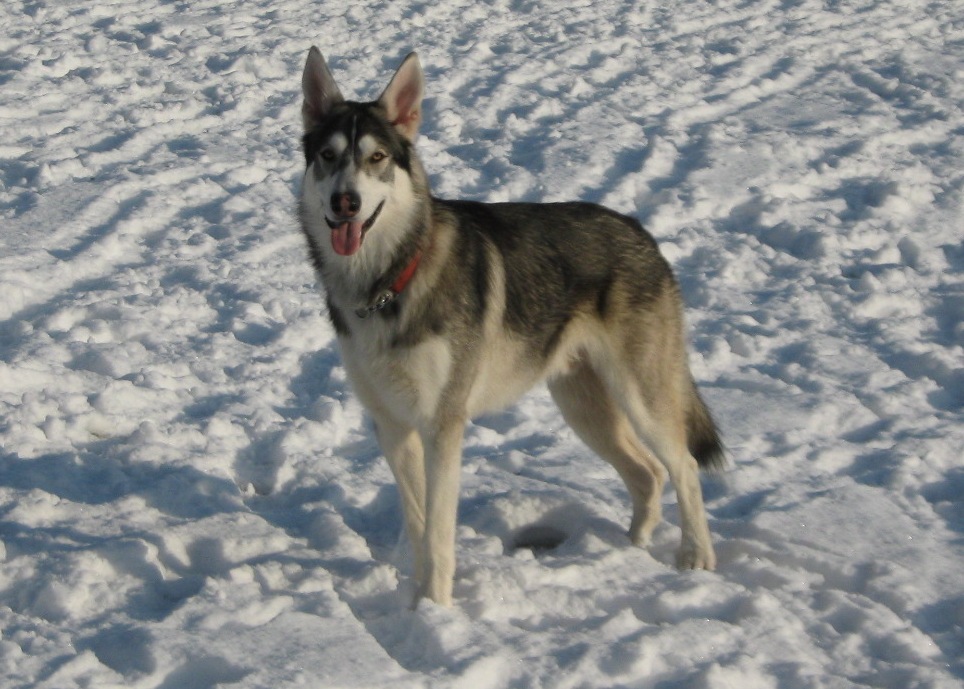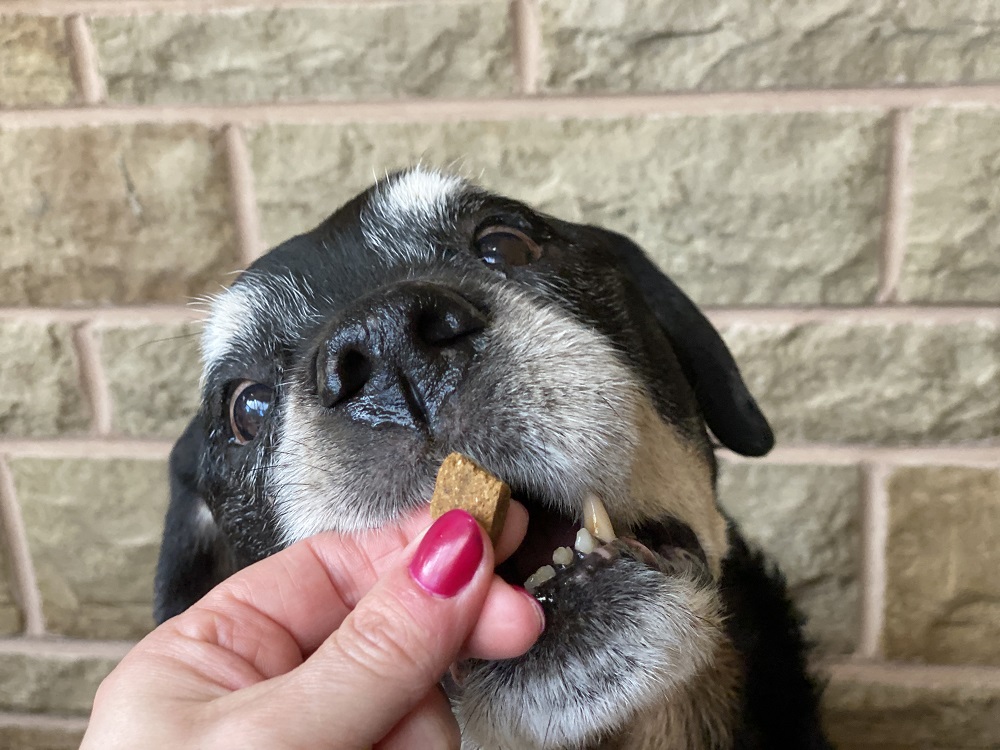Fat pets will die young warns PDSA as it launches biggest ever pet health campaign – Long Live Pets
The UK’s pet owners are warned today that they are killing their pets with kindness, as new PDSA figures show dog obesity is rising at a dramatic rate!
Dog Obesity Map
Leading veterinary charity, PDSA used the first day of Crufts to reveal its dog obesity map. This ties in with the launch of its ‘Long Live Pets’ campaign, the PDSA’s biggest ever pet health initiative, designed to promote a healthy life for all pets and starts by addressing the weighty issue of obesity.
PDSA has also developed its own version of Body Condition Scoring to help owners learn more about a healthy body shape and to help them identify when their pets are piling on the pounds.

Sadly, dogs, like humans, are failing to win the battle of the bulge, with many owners putting their animal’s lives in danger by feeding them chocolate*, ready meals and fatty foods. One in three dogs seen by PDSA PetCheck nurses are overweight.
Dog Obesity Health Problems
This means that the life ‘pet-spectancy’ of many beloved UK pets will be cut short as a result of this obesity epidemic, warns the charity for pets in need of vets. An overweight Labrador for example, could have its life cut short by as much as two years and is more likely to develop chronic diseases such as arthritis when younger. Overweight pets are more likely to develop conditions such as arthritis, diabetes, heart and kidney problems.
PDSA Chief Veterinary Surgeon, Richard Hooker, says: “Our Long Live Pets initiative will address key pet health issues, starting with pet obesity. It is our biggest ever pet health campaign, and our objective is to implement a number of pet health care initiatives such as our Pet Fit Club slimming competition and national sponsored dog walk, which will raise awareness and hopefully achieve positive results for obese pets and address the burgeoning waistlines of the UK pet population.
“As the UK’s leading veterinary charity we provide over 1.8 million treatments to sick and injured pets every year, which means we have a wealth of knowledge and expertise on important pet health issues. As such, we have a duty of care to educate owners about the health and lifestyle needs of their pets to ensure they have the best quality of life possible.â€
PDSA pet health checks of more than 9,000 dogs** during 2006 and 2007 reveal which UK regions are home to the portliest pooches. Nationally, PDSA data also shows a dramatic rise of 9 per cent in the number of overweight dogs seen in 2007 – 30 per cent of dogs health checked in 2007 were considered overweight, compared to only 21 per cent in 2006.
When applying PDSA’s 30 per cent overweight figure to the entire UK dog population (around 6.5 million) it means that around 1.95 million UK dogs are overweight! And, if each of those pets was carrying just one extra inch around their waist that would make for one gigantic waistline – stretching the length of more than 500 football pitches!
The PDSA study also shows that hotspots for overweight pets are areas where people are more likely to be obese. PDSA found the number of fat pets in the Midlands stood at 29 per cent in 2007 compared to 19 per cent in 2006. Recent human obesity figures*** showed the Midlands had the largest number of people classed as obese. Meanwhile, the lowest dog obesity figures were in London at 19 per cent. Human obesity is also low in the Southeast. Wales, Scotland and Northern Ireland all score poorly on dog obesity with 30 per cent classed as overweight by PDSA veterinary staff. The overall worst region for dog obesity is the Northwest where 31 per cent of dogs seen are overweight.
Interestingly, child obesity figures also mirror PDSA’s dog obesity statistics with one in three Year 6 children classed as overweight or obese.****
Richard Hooker, adds “Kindness can be misplaced and feeding any animal too many treats can have serious health consequences. The research we have done shows that there is a real need for owners to help their overweight pets lose those excess pounds. Controlled portions of pet food and regular exercise are vital to ensure a healthy life for all our pets. In a nutshell, exercise, nutrition and body awareness are key.â€
Case study:
PDSA pet slimming success story, Scooby, will be the star of Crufts after losing 2.5kg and four inches from her waist while taking part in PDSA Pet Fit Club, a 100 day diet and exercise programme. A table will be laid out with the food Scooby ate before her diet including fish and chips, curry, pizzas and ice cream. Scooby now enjoys a balanced diet and healthy lifestyle and has continued to lose weight in recent weeks.
At the start of her diet, Scooby was carrying 81% extra weight and 8 inches too many around her waist! If all of the overweight dogs in the UK were carrying Scooby’s extra inches, that would mean 15.6 million excess inches or 246 miles of dangerous flab, nearly twice the length of the M25! And this is probably just the tip of the iceberg as most dogs in the UK are a lot bigger, and wider than Scooby.
Thanks to her weight-loss, Scooby now has a much improved quality of life and will no doubt live a lot longer than she would had she remained dangerously overweight.
For more information about PDSA visit www.pdsa.org.uk
Obesity is one of the most common health related problem to affect dogs, especially older ones. An overweight dog is generally an unhappy dog and subsequent health problems can drastically reduce a dog’s life and render his later years void of any real quality.
Dog Obesity Kills Silently
All dogs relish a tasty treat and they are an excellent way to reward good behaviour, but if overused your dog could end up suffering from obesity before you even realise you are spoiling him. It is important to pay close attention to your dog’s diet for many reasons, but particularly if your dog is overweight.
A balanced diet is essential to keeping a dog fit and healthy.
Modern prepared foods contain an adequate supply of essential nutrients without too many calories, as do many home mixed diets.
Complete, dry dog food is popular today, as it is an easy to prepare meal which contains a good supply of all the right nutrients – provided you do your research and select the most appropriate food for your particular dog and their individual lifestyle.
Commercial canned foods, whether mixed or on their own, are a good source of nutrition and are easy to prepare and store. Some dog owners favour a nutritional supplement to add to the dog’s meal, rice is a good source of carbohydrates and is easily mixed with other foods.
Certain treats make a nutritious supplement to a meal and also serve as a good reward for him, but dog biscuits alone to not offer adequate nutrition to be served as meal on their own.
The majority of young, healthy and active dogs are at a low risk of becoming overweight as the majority of their calorific intake is used during play.
If you have ever taken your dog off his lead in a large forest or field you will have noticed that he will always do more miles than you because he runs off and comes back as you are walking. This is one of the reasons that he is so healthy. But there will come a point in his life when he is unable to do as much exercise so it is important to control his diet accordingly.
However, during his more active years it is still important to take care of his diet to ensure that he is receiving a good balance of protein and other valuable nutrients. Your vet will be able to advise you on this matter should any uncertainty arise.
You may not notice it at first, but should your dog become obese there are certain tell tale signs apart from the obvious physical weight gain. A diminished level of activity not conducive to his age is always a cause for concern, but a likely cause is that he has put on a little weight.
Another symptom is laboured breathing. If your dog struggles for breath after an activity which he once could do effortlessly then perhaps it is time to get the scales out. As a dog owner it is often difficult to notice if your dog is putting on weight because you see him every day. But paying close attention to other elements of his physical state may enlighten you to any weight problems.
As the majority of dogs become I their later years it is often difficult for them to loose weight through increased exercise, so it is up to you as a dog owner to monitor and control what the dog eats. A good way of doing this is by simply reducing portion size.
Be careful about overfeeding a dog on treats
Be careful about overfeeding a dog on treats
It is often the case that a regular portion of dry or complete dog food offers more than enough nutrition and therefore it is quite possible to reduce the meal sizes without affecting the nutritional intake of the dog. You should have a target weigh in mind and plan thoroughly the weight loss programme so you can monitor his progress. One advantage of a dieting dog is that he will never sneak a biscuit on the sly so you can keep an exact record of what he has eaten.
As a dog owner it is important for you to be disciplined. Your dog will probably not notice the reduced size of his meals. But you will, so be sure not to sneak him a treat and hope it does not affect him, because it will, and you will be doing him no favours. So no matter how hungry he looks it is imperative that for him to loose weight you must stick religiously to the diet, or there will be absolutely n point in even starting it.
* Chocolate can poison dogs and other pets, because of the toxic effects of theobromine – a common component of chocolate intended for humans. In dogs the effects of chocolate poisoning appear within 4 to 24 hours of ingestion and can have fatal consequences.
** Results are based on over 9,000 dogs given PDSA pet health checks between March and October 2006 and March and October 2007.
*** Human obesity research by Southampton and Portsmouth Universities on 18,000 adults. http://www.dailymail.co.uk/pages/live/articles/news/news.html?in_article_id=454673&in_page_id=1770
****Results from the National Child Measurement Programme launched in 2005
Enter your email and never miss out on receiving our best articles:








